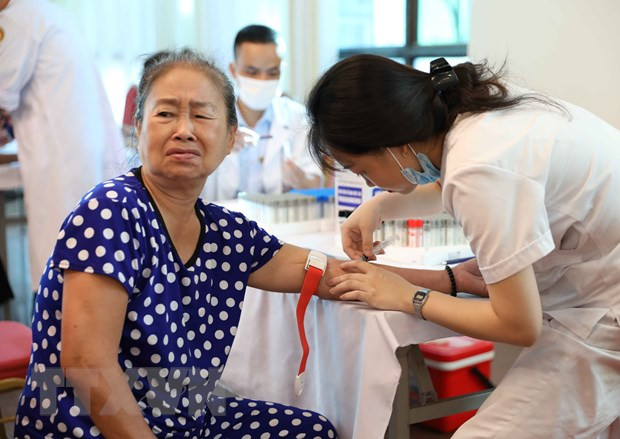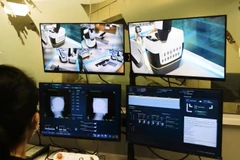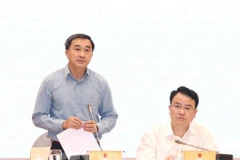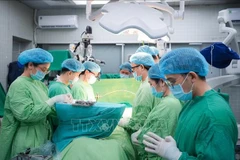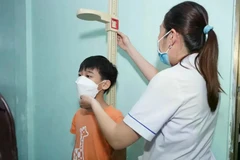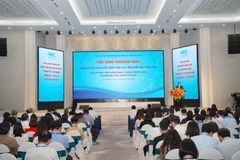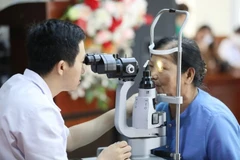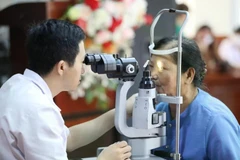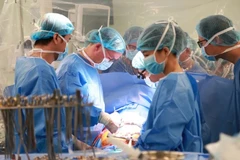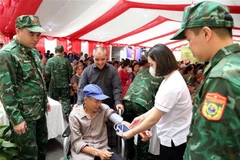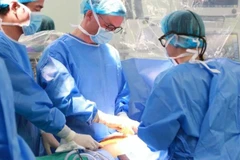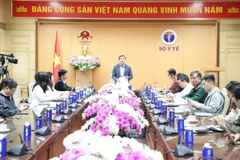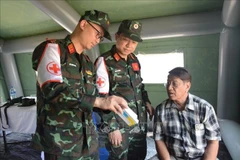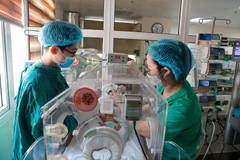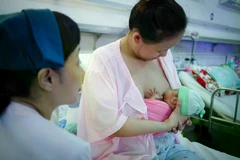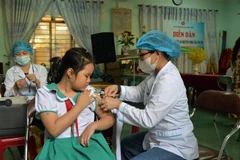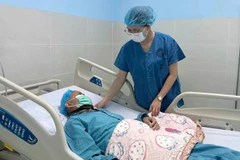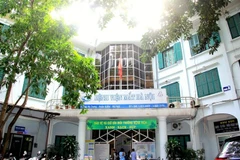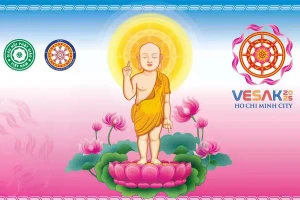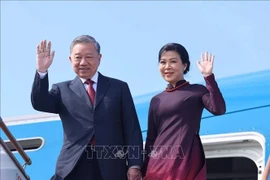Hanoi (VNA) – Vietnam is one of the countries enjoying a developed healthcare system in the ASEAN with nearly 90 percent of the population (about 84 million people) enjoying support from medical insurance, according to a report entitled “Power of Self-care in Achieving Health-for-All”.
The report was conducted by the Vietnam office of KPMG - a global network of professional firms providing audit, tax and advisory services - in collaboration with pharmaceuticals firm Sanofi Vietnam. The document was announced on August 21 at an e-conference, making it the first bespoke discussion paper on the topic of self-care in Vietnam.
The report showed that Vietnam has the potential to enjoy plenty of economic benefits when implementing the self-care scheme by enhancing the national healthcare understanding and expanding the public opportunities to approach treatment methods to reduce cost.
With remarkable achievements in the fight against the COVID-19 pandemic over the recent past, Vietnam has demonstrated their outstanding medical capacity and been striving to achieve Universal Health Coverage by 2030, as part of the United Nations’ Sustainable Development Goals.
However, the white paper points out many emerging challenges that Vietnam’s health system is facing. They include a fast-growing aging population; mounting healthcare expenses pressing families into poverty; the rise of non-communicable diseases as a consequence of improper lifestyles, and others.
Self-care has proved to be effective in many countries across the world. Proactivity in disease prevention and self-management in minor acute issues bring multilateral benefits spanning across patients, government, and industry.
Besides, the white paper demonstrates the socio-economic advantages gained from self-care implementation in Vietnam. For instance, the country’s healthcare system could save approximately 370 million USD to 610 million USD from annual disease treatments and unlock up to 4.2 billion USD in annual economic outcomes. The report envisions the Vietnamese economy could increase by up to 6 billion USD in 2025.
The adoption of self-care is also compatible and strongly aligned with the aim and initiatives of the “Suc khoe Vietnam” programme.
Luke Treloar, director, head of Healthcare and Life Sciences, KPMG Vietnam, said that the discussion paper looks into one of the biggest challenges that Vietnam’s health system is facing on its pathway toward the 'Vietnam 4.0' vision and Universal Health Coverage goals. The institution has studied the benefits of promoting and implementing self-care and its initiatives in the developing context of Vietnam.
According to the World Health Organization, self-care is the ability of individuals to promote health, prevent disease, and maintain health to cope with illness. In other words, self-care is essentially the practice of allowing individuals to manage their wellness efficiently and to coordinate with healthcare experts when needed.
With scientific evidence and multilateral benefits that the model brings to patients, the Government and the industry are a motivation for Sanofi and KPMG to launch the discussion paper, said Penn Policarpio, general manager, Sanofi Consumer Healthcare, Vietnam and Cambodia.
Sanofi Vietnam has a staff of over 1,000 across the country. Its products have been present in Vietnam for over 50 years. Sanofi is the only multinational pharma corporation which owns three WHO-GMP factories in Vietnam, supply 80 per cent of Sanofi’s products in the country.
In 2018, Sanofi Vietnam took the lead in the market with a 4 percent market share. In 2019, it received an import license for pharmaceutical trading in Vietnam, pursuant to the Ministry of Health’s Decision No.2542/QD-BYT and Decree No.54/2017/ND-CP dated May 8, 2017. This accreditation turns Sanofi into the first lawful multinational importer in the drug production industry in the country./.
